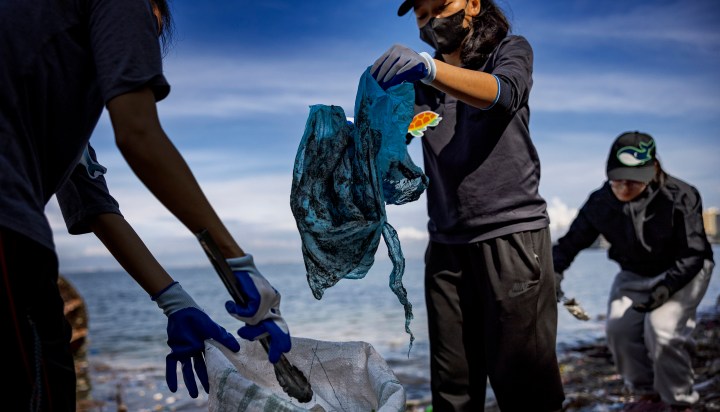WASTE NOT
Negotiations move a step closer to finalising an internationally binding treaty to end plastic pollution

The fourth Intergovernmental Negotiating Committee on Plastic Pollution in Ottawa, Canada, has progressed in negotiations to conclude a global treaty to end plastic pollution.
Efforts to finalise a legally binding treaty to end plastic pollution moved a step forward at the fourth Intergovernmental Negotiating Committee (INC-4) in Ottawa, Canada, which concluded on Monday after almost a week of negotiations that saw global leaders, civil society and industry lobbyists seek a solution for one of the most pressing environmental issues.
It’s been two years since the INC-3 in Nairobi, Kenya, saw the adoption of a draft treaty to end plastic pollution.
Read more in Daily Maverick: Plastic, plastic everywhere – decades of talking moves closer to global action
“To stop plastic pollution, we need to start at the start and end at the end,” said Inger Andersen, executive director of the UN Environment Programme (UNEP) at the opening plenary of INC-4.
“This means crafting an instrument that ensures we use fewer virgin materials and less problematic plastic. That we avoid exposure to harmful chemicals. That we design for circularity. That we use, reuse and recycle resources more efficiently. This is the instrument we need to protect human and ecosystem health — while ensuring a just transition and space for the private sector to thrive in a new sustainable economy,”
Plastic production peaked after World War 2, offering investors a cheap, light and durable material that could be used in industries such as technology, medicine and transport.
The breakdown of these materials as they move from land to sea and interact with natural elements creates microplastics, which have been detected in marine organisms from plankton to whales, in commercial seafood, and even in drinking water.
The growth of the plastic industry also saw a huge increase in single-use plastics, which account for about 40% of the more than 430 million tonnes of plastic produced a year.
Read more in Daily Maverick: SA to push for financial support in internationally binding plastic pollution treaty
Clock ticking
INC-4 was the penultimate gathering to conclude the plastic pollution treaty. The global agreement will be sealed at INC-5 in Busan, South Korea.
While the financing instrument to support the end of plastic pollution seemed to be a bone of contention among delegates, a couple of weeks ago, 160 financial institutions and two industry stakeholders became signatories to a Finance Statement on Plastic Pollution. The statement acknowledges “that the financial sector can have a role in mitigating the material financial risks related to plastic pollution through our financed activities and investments”.
In addition, the signatories “call on governments to agree [to] an ambitious ILBI [international legally binding instrument] that sets a clear objective to end plastic pollution and that is supported by binding rules and obligations for governments to address the full life cycle of plastic”.
African negotiators have backed the call for a strong financial mechanism. They have also called for an effective instrument to tackle illegal plastic waste traffic and dumping on the African continent.
Some organisations have raised concerns that such calls may lead to pushback from the plastic and fossil fuel industries. According to the Center for International Environmental Law, 196 fossil fuel and chemical industry lobbyists were present at INC-4.
Jacob Attakpah of Green Africa Youth Organisation, Ghana, said, “I think it is important to ensure that we are no longer at the receiving end of plastic waste because Africa is not a net producer of plastic, but we are always at the receiving end of plastic waste under the guise of recycling. To reduce the plastic waste that gets into the continent, we must first look at reducing plastic production.” DM



















Recycling will never be an adequate solution. We need to stop producing so much plastic. Whenever I have to do any shopping I dismay at the amount of plastic that is totally unecessary. Anyone producing single use or nonrecyclable plastic is commiting a crime against the planet and future generations.
Ending plastic pollution is one thing I am totally in agreement with!!!